
Year of Renewal 2024 革新年
2024 Year of Renewal 革新年
Are you looking for a way to improve your personal and professional relationships, enhance your creativity and productivity, and live a more authentic and fulfilling life? If so, you might want to check out the book A Way of Being by Carl R. Rogers, one of the most influential psychologists of the 20th century.
In this book, Rogers shares his insights and experiences on how to develop a way of being that is congruent with your true self, values, and goals. He also explains how to apply his humanistic approach to various fields and contexts, such as education, therapy, social work, and leadership. You will learn how to cultivate a genuine, empathic, and accepting attitude towards yourself and others, and how to foster a climate of growth and change in any situation.
A Way of Being is a classic work that reflects Rogers’s lifelong passion and wisdom. It is a must-read for anyone who wants to discover their potential and live more fully. To learn more about this book and its author, visit selfology.co, a website dedicated to helping you explore and express your true self. You can also find more resources and information on ology.land, a platform that connects you with other like-minded people who share your interests and passions.
In this blog post, we will highlight some of the key ideas and concepts from A Way of Being that can help you live authentically and happily. We will also provide some practical tips and exercises that you can use to apply these ideas to your own life.
One of the core concepts that Rogers explores in A Way of Being is the nature of the self. He defines the self as “the organized, consistent conceptual gestalt composed of perceptions of the characteristics of ‘I’ or ‘me’ and the perceptions of the relationships of the ‘I’ or ‘me’ to others and to various aspects of life, together with the values attached to these perceptions” (p. 139).
In other words, the self is how you see yourself, how you relate to others and the world, and what you value and care about. The self is not fixed or static, but rather dynamic and evolving. It is influenced by your experiences, feedback, and environment, as well as by your innate tendencies and potentials.
Rogers believes that the self has two aspects: the real self and the ideal self. The real self is who you actually are, with all your strengths, weaknesses, feelings, and thoughts. The ideal self is who you would like to be, or who you think you should be, based on your standards, expectations, and aspirations.
The degree of congruence or incongruence between the real self and the ideal self determines how you feel about yourself and your life. If there is a high degree of congruence, you will feel more authentic, confident, and satisfied. If there is a low degree of congruence, you will feel more alienated, anxious, and frustrated.
One of the factors that can create incongruence between the real self and the ideal self is the presence of conditions of worth. These are the requirements or expectations that you or others impose on yourself in order to be worthy of love, acceptance, or approval. For example, you may believe that you have to be smart, successful, or attractive in order to be valued or respected.
Conditions of worth can distort your self-perception and self-expression. They can make you ignore or deny your true feelings, needs, and preferences, and adopt those that are more acceptable or desirable to others. They can also make you judge yourself harshly and negatively, and feel guilty or ashamed of who you are.
Rogers argues that conditions of worth are detrimental to your psychological well-being and growth. They prevent you from being yourself and from realizing your full potential. They also interfere with your ability to form healthy and satisfying relationships with others, as you may fear rejection, criticism, or abandonment if you reveal your true self.
The antidote to conditions of worth is unconditional positive regard. This is the attitude of accepting and valuing yourself and others without any strings attached. It means that you respect and appreciate yourself and others for who they are, not for what they do or how they conform to certain standards or expectations.
Unconditional positive regard is essential for developing a congruent and authentic self. It allows you to be honest and open with yourself and others, and to express your feelings, needs, and preferences without fear or guilt. It also allows you to explore and experiment with different aspects of yourself, and to discover and develop your unique potentials and talents.
Rogers believes that unconditional positive regard is a natural and innate tendency that we all have, but that it can be blocked or distorted by external or internal factors. He suggests that one of the ways to cultivate unconditional positive regard is to receive it from others, especially from significant people in our lives, such as parents, teachers, friends, or therapists.
He also suggests that another way to cultivate unconditional positive regard is to practice it towards ourselves and others. He proposes that we can do this by:
Another key concept that Rogers explores in A Way of Being is the process of change. He views change as a natural and inevitable phenomenon that occurs throughout our lives, as we encounter new situations, challenges, and opportunities. He also views change as a positive and desirable phenomenon that leads to growth, development, and fulfillment.
This is when you are not aware of the need or possibility of change, or when you are resistant or defensive to change. You may be comfortable or complacent with the status quo, or you may be fearful or doubtful of change. You may also be unaware of your true feelings, needs, and preferences, or you may deny or rationalize them.
This is when you become aware of the need or possibility of change, and when you start to explore and experiment with change. You may experience curiosity, interest, or excitement about change, or you may experience anxiety, confusion, or ambivalence about change. You may also become more aware of your true feelings, needs, and preferences, or you may experience conflict or confusion about them.
This is when you embrace and implement change, and when you experience the benefits and outcomes of change. You may experience satisfaction, joy, or gratitude for change, or you may experience relief, acceptance, or peace for change. You may also become more congruent and authentic with your true feelings, needs, and preferences, or you may experience harmony or alignment with them.
Rogers emphasizes that the process of change is not linear or sequential, but rather circular or spiral. You may move back and forth between the stages, or you may experience more than one stage at the same time. You may also encounter different levels or degrees of change, depending on the situation and the context.
Rogers also emphasizes that the process of change is not passive or automatic, but rather active and intentional. You have to be willing and ready to change, and you have to take action and responsibility for change. You also have to be flexible and adaptable to change, and you have to cope and adjust to change.
One of the main goals of Rogers in A Way of Being is to facilitate change in himself and others. He believes that change can be facilitated by creating and maintaining a certain type of relationship or environment that supports and encourages change. He calls this type of relationship or environment a person-centered or client-centered approach.
A person-centered or client-centered approach is based on the following principles:
Rogers applies the person-centered or client-centered approach to various fields and contexts, such as education, therapy, social work, and leadership. He demonstrates how the person-centered or client-centered approach can enhance the learning, healing, empowerment, and transformation of individuals, groups, and organizations.
Here are some possible tips and exercises for writing a self-reflection based on A Way of Being by Carl R. Rogers: These tips and exercises are designed to help you develop a way of being that is congruent and authentic, and to facilitate change in yourself and others.
We hope that these tips and exercises will help you write a meaningful and insightful self-reflection based on A Way of Being by Carl R. Rogers. We encourage you to practice self-reflection regularly, as it can help you develop a way of being that is congruent and authentic, and to facilitate change in yourself and others. Thank you for reading this blog post, and we wish you all the best in your journey of self-discovery and self-actualization.
存在之道
您是否正在尋找一種方法來改善您的個人和職業關係,提高您的創造力和生產力,並過上更真實、更充實的生活?如果是這樣,您可能想看看 20 世紀最有影響力的心理學家之一卡爾·羅傑斯 (Carl R. Rogers) 的《存在方式》一書。
在這本書中,羅傑斯分享了他對如何發展一種與真實自我、價值觀和目標相一致的存在方式的見解和經驗。他還解釋了如何將他的人文主義方法應用於各個領域和背景,例如教育、治療、社會工作和領導力。您將學習如何培養對自己和他人的真誠、同理心和接受的態度,以及如何在任何情況下營造成長和變化的氛圍。
《存在之道》是一部經典之作,反映了羅傑斯畢生的熱情和智慧。對於任何想要發現自己的潛力並更充實地生活的人來說,這都是必讀的。要瞭解有關本書及其作者的更多資訊,請訪問 selfology.co,該網站致力於説明您探索和表達真實的自我。您還可以在ology.land上找到更多資源和資訊,該平臺將您與其他志同道合的人聯繫起來,他們與您有著共同的興趣和激情。
在這篇博文中,我們將重點介紹《存在之道》中的一些關鍵思想和概念,這些思想和概念可以説明您真實而快樂地生活。我們還將提供一些實用的技巧和練習,您可以使用這些技巧和練習將這些想法應用到自己的生活中。
自我的本質
羅傑斯在《存在之道》中探討的核心概念之一是自我的本質。他將自我定義為“有組織的、一致的概念格式塔,由對’我’或’我’特徵的感知以及對’我’或’我’與他人和生活各個方面的關係的感知,以及這些感知所附帶的價值組成”(第139頁)。
換句話說,自我是你如何看待自己,你如何與他人和世界相處,以及你重視和關心什麼。自我不是固定的或靜態的,而是動態的和不斷發展的。它受到你的經驗、反饋和環境的影響,也受到你與生俱來的傾向和潛力的影響。
羅傑斯認為,自我有兩個方面:真實的自我和理想的自我。真正的自我是你到底是誰,擁有你所有的長處、短處、感受和想法。理想的自我是你想成為的人,或者你認為你應該成為的人,基於你的標準、期望和願望。
真實自我和理想自我之間的一致性或不一致性程度決定了你對自己和生活的感受。如果有高度的一致性,你會感到更真實、更自信、更滿足。如果一致性程度低,你會感到更加疏遠、焦慮和沮喪。
價值的條件
在真實自我和理想自我之間造成不一致的因素之一是價值條件的存在。這些是你或他人強加給自己的要求或期望,以便值得被愛、接受或認可。例如,您可能認為您必須聰明、成功或有吸引力才能受到重視或尊重。
價值條件會扭曲你的自我認知和自我表達。它們可以讓你忽略或否認你的真實感受、需求和偏好,並採用那些更容易被他人接受或渴望的東西。它們還會讓你嚴厲和消極地評判自己,併為自己的身份感到內疚或羞愧。
羅傑斯認為,價值條件對你的心理健康和成長是有害的。它們阻止你做你自己,阻止你充分發揮潛力。它們還會干擾你與他人建立健康和令人滿意的關係的能力,因為如果你暴露了真實的自我,你可能會害怕被拒絕、批評或拋棄。
無條件的積極關注
價值條件的解藥是無條件的積極關注。這是接受和重視自己和他人的態度,沒有任何附加條件。這意味著你尊重和欣賞自己和他人,因為他們是誰,而不是因為他們做了什麼或他們如何符合某些標準或期望。
無條件的積極關注對於培養一個一致和真實的自我至關重要。它可以讓你對自己和他人誠實和開放,並在沒有恐懼或內疚的情況下表達你的感受、需求和偏好。它還允許您探索和嘗試自己的不同方面,並發現和發展您獨特的潛力和才能。
羅傑斯認為,無條件的積極關注是我們所有人都有的一種自然和與生俱來的傾向,但它可能會被外部或內部因素所阻礙或扭曲。他建議,培養無條件積極關注的方法之一是從他人那裡獲得它,尤其是從我們生活中的重要人物那裡獲得它,例如父母、老師、朋友或治療師。
他還建議,培養無條件的積極關注的另一種方法是對自己和他人進行實踐。他建議我們可以通過以下方式做到這一點:
變革的過程
羅傑斯在《存在之道》中探討的另一個關鍵概念是變化的過程。他認為變化是一種自然而不可避免的現象,當我們遇到新的情況、挑戰和機遇時,它會在我們的一生中發生。他還認為變化是一種積極和可取的現象,可以帶來成長、發展和成就感。
羅傑斯確定了變革過程中的三個主要階段或階段:
[1] 無意識的階段
這是當你沒有意識到改變的必要性或可能性時,或者當你對改變有抗拒或防禦的時候。你可能對現狀感到滿意或自滿,或者你可能害怕或懷疑改變。你也可能不知道你的真實感受、需求和偏好,或者你可能會否認或合理化它們。
[2] 探索階段
這是當你意識到改變的必要性或可能性,以及你開始探索和嘗試改變的時候。您可能會對變化感到好奇、興趣或興奮,或者您可能會對變化感到焦慮、困惑或矛盾。您也可能會更加瞭解自己的真實感受、需求和偏好,或者您可能會對它們感到衝突或困惑。
[4] 整合階段
這是你擁抱和實施變革的時候,也是你體驗到變革的好處和結果的時候。你可能會對改變感到滿意、喜悅或感激,或者你可能會對改變感到寬慰、接納或平安。你也可能變得更加符合和真實,你的真實感受、需求和偏好,或者你可能會體驗到與它們的和諧或一致。
羅傑斯強調,變化的過程不是線性或順序的,而是迴圈或螺旋的。您可以在各個階段之間來回移動,或者您可能同時體驗多個階段。根據情況和上下文,您還可能會遇到不同級別或程度的變化。
羅傑斯還強調,變革的過程不是被動的或自動的,而是主動的和有意識的。你必須願意並準備好改變,你必須採取行動並承擔改變的責任。你還必須靈活和適應變化,你必須應對和適應變化。
促進變革
羅傑斯在《存在之道》中的主要目標之一是促進自己和他人的改變。他認為,可以通過建立和維持某種支援和鼓勵變革的關係或環境來促進變革。他將這種關係或環境稱為以人為中心或以客戶為中心的方法。
以人為本或以客戶為中心的方法基於以下原則:
羅傑斯將以人為本或以客戶為中心的方法應用於各個領域和背景,例如教育、治療、社會工作和領導力。他展示了以人為本或以客戶為中心的方法如何促進個人、團體和組織的學習、康復、賦權和轉型。
實用技巧和練習
以下是一些可能的技巧和練習,用於根據 Carl R. Rogers 的 A Way of Being 撰寫自我反思: 這些技巧和練習旨在説明您發展一種一致和真實的存在方式,並促進自己和他人的改變。
寫一篇自我反思
我們希望這些技巧和練習能幫助你根據 Carl R. Rogers 的 A Way of Being 寫出有意義和有見地的自我反思。我們鼓勵您定期進行自我反省,因為它可以説明您發展一種一致和真實的存在方式,並促進自己和他人的改變。感謝您閱讀這篇博文,我們祝願您在自我發現和自我實現的旅程中一切順利。
Let Carl R. Roger’s A Way of Being show you the path to better personal and professional relationships, increased creativity, and authentic living! Make the most of the opportunity to live your life to the fullest. #AWayOfBeing #Selfology #OlogyLand
讓 Carl R. Roger 的 A Way of Being 向您展示通往更好的個人和職業關係、增加創造力和真實生活的道路!充分利用這個機會,過上充實的生活。#AWayOfBeing #Selfology #OlogyLand
A Way of Being is a book by Carl R. Rogers, one of the most influential psychologists of the 20th century. The book is a collection of essays and speeches that Rogers wrote in the last decade of his life, reflecting on his personal and professional experiences, his humanistic approach to psychology, and his vision for a better world.
The book covers topics such as:
The book is a valuable resource for anyone who wants to learn more about Rogers’s life and work, his contribution to psychology and humanism, and his relevance to the contemporary world. It is also a source of inspiration and guidance for anyone who wants to develop a way of being that is authentic, compassionate, and meaningful.
To read the full book review and learn more about the author, visit the publisher at Education and Learning Technology Company | HMH (hmhco.com) where you can buy the book directly from them. The ISBN number 0547524447. (A Way of Being by Carl R. Rogers was published by Houghton Mifflin Harcourt, a leading publisher of books and educational materials). You can also find them a retailers, such as Amazon or Google Books.
*selfology.co, a website dedicated to helping you explore and express your true self. You can also find more resources and information on ology.land, a platform that connects you with other like-minded people who share your interests and passions.
《存在之道》是 20 世紀最有影響力的心理學家之一卡爾·羅傑斯 (Carl R. Rogers) 的一本書。這本書是羅傑斯在他生命的最後十年中撰寫的論文和演講集,反映了他的個人和職業經歷、他對心理學的人文主義方法以及他對更美好世界的願景。
本書涵蓋的主題包括:
對於任何想要更多地了解羅傑斯的生活和工作、他對心理學和人文主義的貢獻以及他與當代世界的相關性的人來說,這本書都是寶貴的資源。對於任何想要發展一種真實、富有同情心和有意義的存在方式的人來說,它也是靈感和指導的來源。
要閱讀完整的書評並瞭解有關作者的更多資訊,請訪問 教育和學習技術公司的出版商 |HMH(hmhco.com), 您可以直接從他們那裡購買這本書。 ISBN 編號0547524447。 (卡爾·羅傑斯(Carl R. Rogers)的《存在之道》(A Way of Being)由領先的書籍和教育材料出版商霍頓·米夫林·哈考特(Houghton Mifflin Harcourt)出版)。 您還可以在亞馬遜或谷歌圖書等零售商處找到它們。
*selfology.co,一個致力於説明您探索和表達真實自我的網站。您還可以在ology.land上找到更多資源和資訊,該平臺將您與其他志同道合的人聯繫起來,他們與您有著共同的興趣和激情。
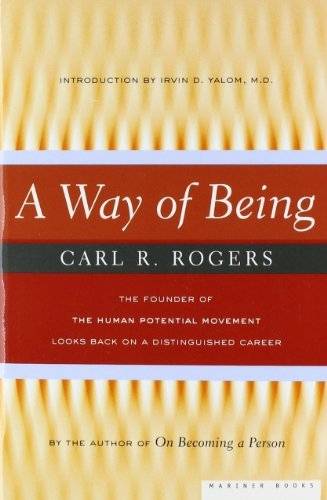
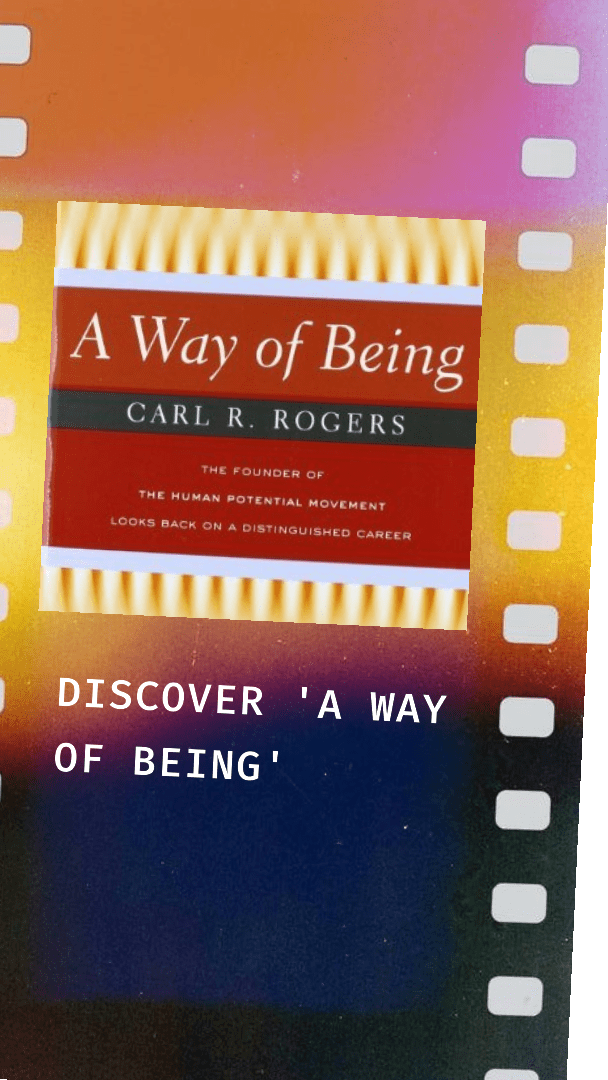
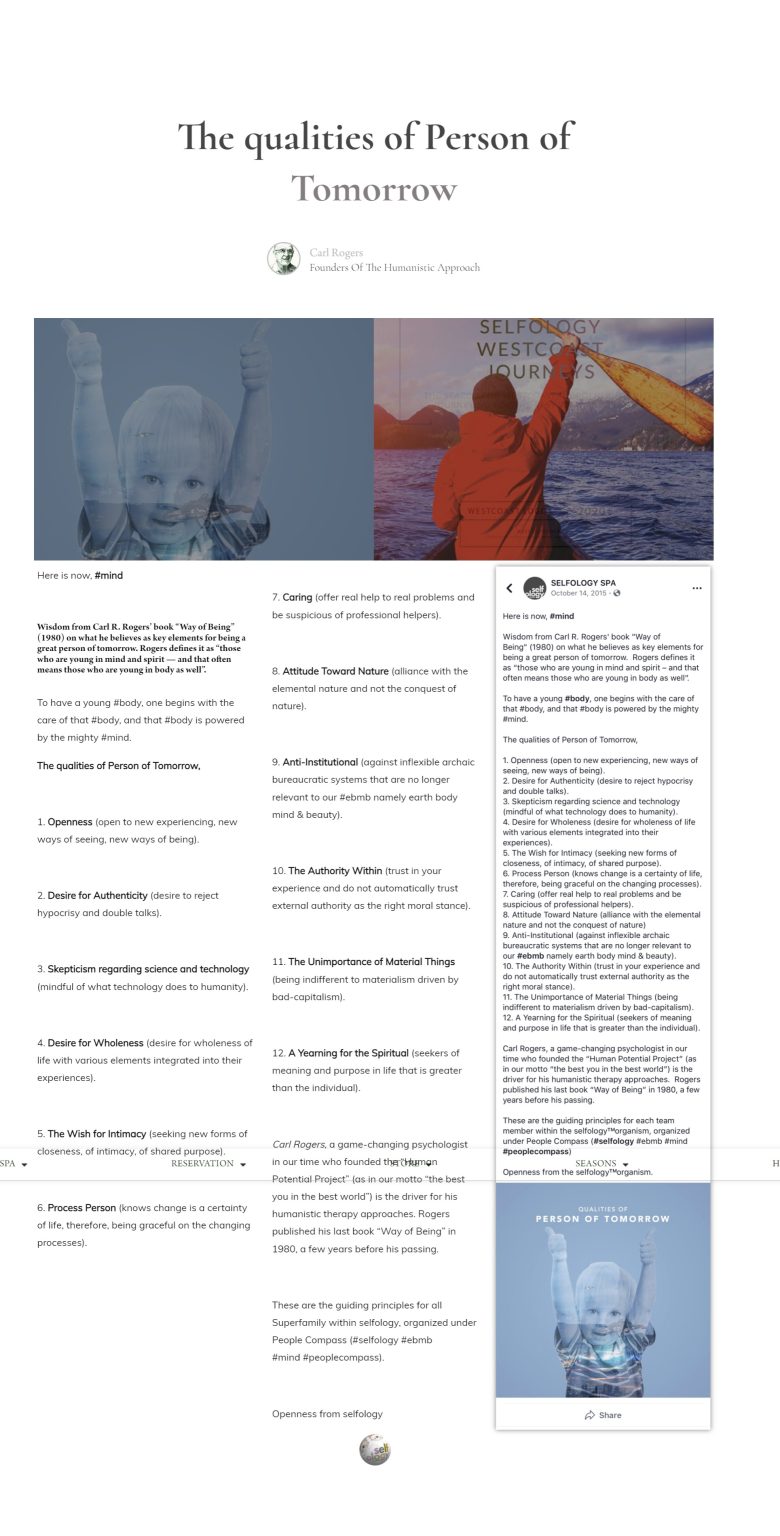
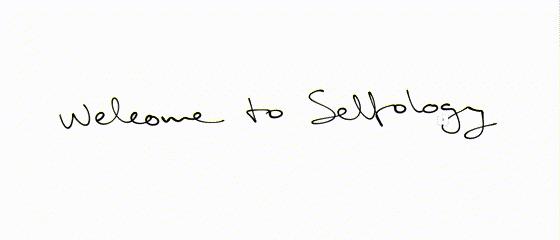
We’re thrilled to share incredible news – Selfology has found and settled into a new perfect home at Granville and 41st Park Square, marking a triumphant journey through the unique challenges of the pandemic “Yesteryears” from 2020 to 2023. Your unwavering support and loyalty have made this possible.
Come visit our sanctuary at Granville & 41st, where an array of self-care experiences await. When you arrive at our Selfology haven, peaceful and spirited people will ensure your visit is truly transformational.

selfology.co/Botox selfology.co/Botox Botox & Filler Injection
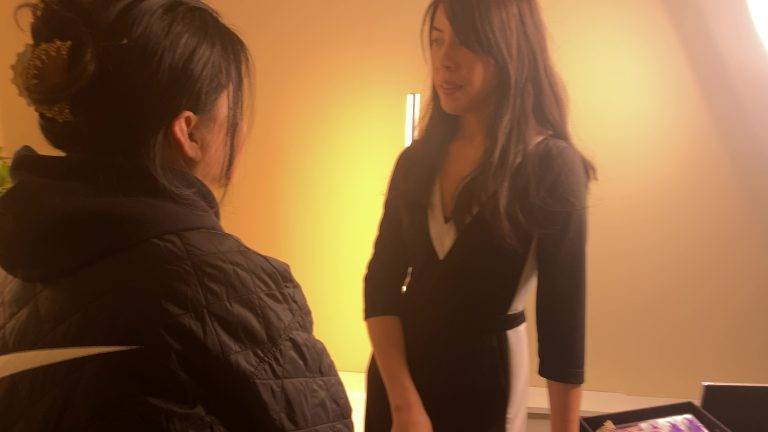
Aesthetics can profoundly impact your well-being by